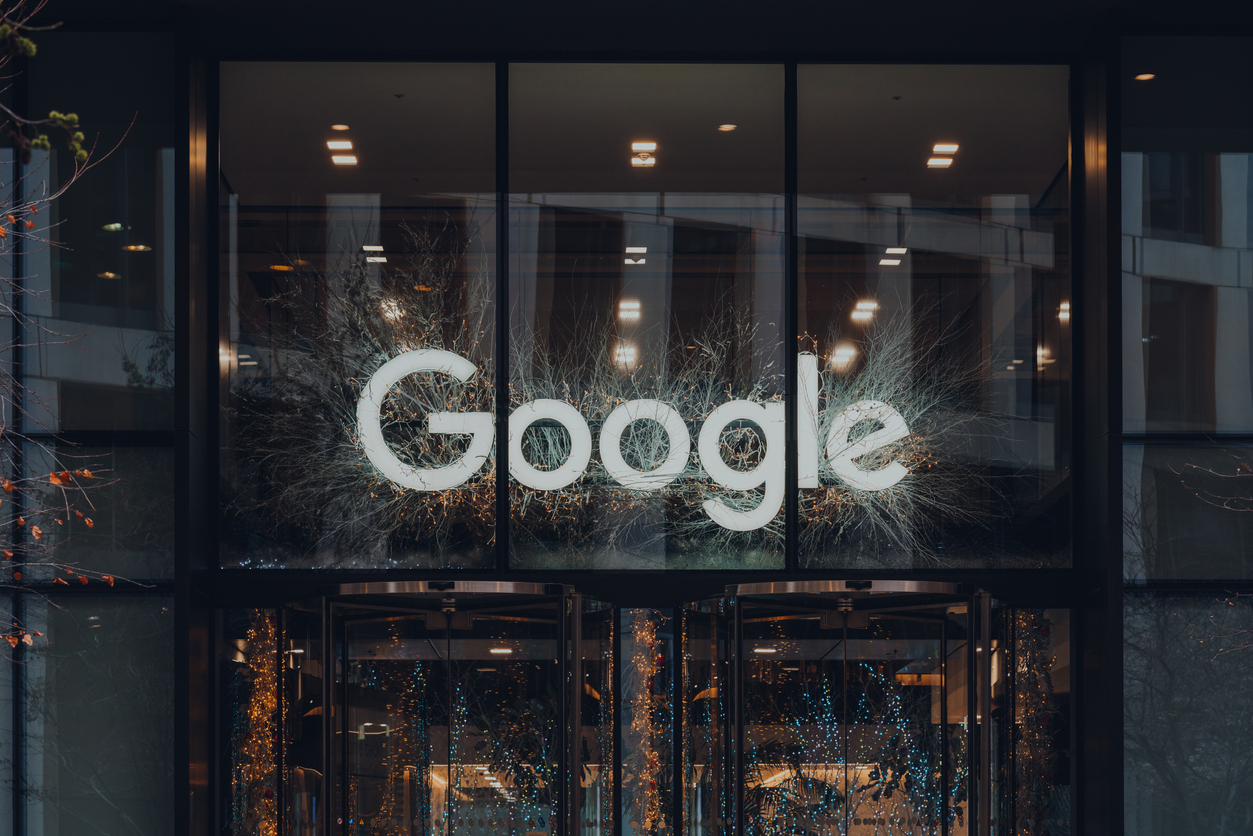Microsoft vs. Google: A High-Stakes Clash Over Cloud, Antitrust, and the Future of Tech
In an unexpected twist in the ongoing battle between tech titans, Microsoft recently leveled accusations at Google, alleging the company has been running covert campaigns designed to harm Microsoft’s reputation in the cloud computing industry. The accusation, detailed by Microsoft’s Deputy General Counsel, Rima Alaily, claims Google has been secretly funding a coalition aimed at undermining Microsoft's cloud business. According to Alaily, Google has financed these so-called “shadow campaigns” to negatively influence the opinions of global regulatory bodies, policymakers, and the public. Google counters, maintaining that it has acted transparently and is merely advocating for fair cloud competition.
This conflict is just the latest in a decades-long rivalry between the two companies, each vying for dominance in various sectors, from online search and cloud computing to AI and digital advertising. As cloud computing services grow increasingly central to both their business models and the broader tech landscape, Microsoft and Google are racing to capture market share, promising a high-stakes contest that will likely reshape the industry. Both companies are also under scrutiny for allegedly monopolistic practices, making this a critical moment in the history of Big Tech and the role of antitrust law in regulating it.
The Cloud: A Growing Market and Increasingly Central Battlefront
The cloud computing industry, once a secondary revenue source, has rapidly become one of the most lucrative segments for both Microsoft and Google. Google’s cloud division recently reported a 35% revenue increase, reaching $11.4 billion, and positioned itself as Alphabet’s second-largest source of income, right behind Google Search. Google’s focus on AI within its cloud services has been pivotal, drawing in new clients and leading to larger contracts. Meanwhile, Microsoft has reported commercial cloud revenue of $38.9 billion, with its Azure platform generating $24.1 billion—making it a formidable force in the cloud market.
Both companies are fiercely competing against Amazon Web Services (AWS), which remains the current leader in the sector. Google’s cloud services are currently ranked third, trailing behind AWS and Microsoft Azure. However, with billions of dollars in cloud revenues and aggressive expansions, the two companies are locked in a heated battle to overtake AWS, marking cloud services as a critical front in their broader tech rivalry.
The Birth of the Open Cloud Coalition
To challenge Microsoft’s cloud dominance, Google has reportedly helped establish the Open Cloud Coalition, a group consisting of smaller European cloud providers that advocate for “a fair and open cloud ecosystem.” According to Alaily, Google’s covert involvement with the coalition is evidence of its attempts to influence regulatory bodies and pressure Microsoft into changing its business practices. Alaily further argues that Microsoft’s cloud licensing agreements, which limit customer options to run their software on competing cloud platforms, are essential to protect its intellectual property, much like licensing practices in other industries.
Google, however, takes issue with these agreements, alleging that Microsoft’s cloud licensing practices are anticompetitive and designed to lock in customers. The complaint focuses on Microsoft’s enterprise software licensing for Windows Server, which Google claims unfairly forces companies to stay within Microsoft’s ecosystem. Google has escalated these grievances to the European Commission, arguing that regulators need to take action to prevent Microsoft from exploiting its market position to limit competition.
The Rise of Antitrust Law: What It Means for Big Tech
The intensifying conflict between Google and Microsoft comes at a time when both companies face increased regulatory scrutiny over antitrust practices. Antitrust law, a cornerstone of fair business practices, was originally designed to prevent monopolies and protect consumer interests by promoting competition. If a company is found to violate antitrust laws, it can face significant penalties, including financial fines, restructuring mandates, or even forced breakups.
The recent surge in Big Tech’s influence has revived interest in antitrust enforcement, particularly as these companies expand their reach into nearly every facet of modern life. Regulators in the U.S. and EU are scrutinizing practices in which tech giants are perceived to stifle competition, whether by limiting consumer choice, restricting access to markets, or using predatory pricing. Violations of antitrust laws can have severe repercussions for a company's future, especially if it leads to enforced divestitures, as Microsoft learned during its own antitrust battles in the 1990s.
Related: Microsoft Restructures EMEA Leadership to Strengthen AI Innovation and Industry Partnerships
A History of Microsoft and Google’s Rivalry
Microsoft and Google’s rivalry dates back over two decades, with the companies competing across search, operating systems, advertising, and more recently, artificial intelligence and cloud services. Microsoft, which had already faced major antitrust challenges in the early 2000s, was the dominant force in software, driven by the Windows operating system. However, Google’s rapid growth as a search engine and digital ad powerhouse in the 2000s set the two on a collision course. Microsoft, recognizing the threat posed by Google’s expanding influence, responded in 2011 with a series of satirical ads aimed at discrediting Google’s services, including its Chrome browser and Gmail.
In 2016, the companies reached a truce, agreeing to avoid regulatory disputes globally. However, this peace was short-lived. By 2021, both companies resumed their competitive hostilities, with Microsoft accusing Google of using unfair practices in online search and advertising. This reignited rivalry reached new heights last year when Microsoft’s CEO Satya Nadella testified in an antitrust case against Google, arguing that Google’s control over default search placements created a "vicious cycle" that prevented Microsoft’s Bing from competing effectively.
Google’s Antitrust Trials and the DOJ Case
The recent DOJ case against Google further underscores the intensity of the antitrust scrutiny facing Big Tech. In this case, U.S. regulators accuse Google of monopolistic practices in online search, including exclusive agreements that prevent rivals from gaining traction. Microsoft’s CEO, Satya Nadella, was one of the most significant witnesses, testifying that Google’s contracts and default placements on various devices effectively block Bing from gaining market share. Nadella argued that these practices would only become more problematic with the advancement of AI, which Google and Microsoft are both heavily investing in.
In a landmark ruling earlier this year, Google was found liable for monopolizing search, a decision that could result in drastic regulatory measures, including the possible breakup of some of Google’s operations. The company is currently in the remedies phase, during which regulators will determine the corrective actions necessary to restore competition. Microsoft has also filed a parallel lawsuit, targeting Google’s dominance in online advertising technologies, claiming that it harms Bing’s performance by restricting ad placements across Google’s ad network.
Related: Google Invests $110 Million in Nigeria's Moniepoint: A Game-Changer for Africa's Fintech Landscape
AI: The Next Battleground
AI has emerged as the latest—and potentially most critical—arena in the rivalry between Microsoft and Google. Both companies have invested heavily in AI capabilities, with Microsoft’s partnership with OpenAI giving it a leg up in the AI race. Integrating AI into its Bing search engine, Microsoft has positioned itself as a contender against Google’s search dominance. Google, however, has its own AI advancements and has begun incorporating AI into its search algorithms and cloud offerings, making this competition a defining factor in the tech industry’s future.
The expansion of AI presents additional regulatory complexities. As the technology becomes more ingrained in products and services, both Microsoft and Google will likely face new regulatory scrutiny over issues related to data privacy, competition, and consumer impact. Given AI’s potential to disrupt entire industries, the decisions regulators make now regarding Microsoft and Google’s market practices could shape the course of tech innovation for decades.
What’s Next for Microsoft, Google, and Big Tech Regulation?
As Microsoft and Google continue to expand their reach, it is unlikely that regulatory pressure will abate any time soon. If found guilty of anticompetitive practices, the potential penalties could include significant fines, operational changes, or even a forced breakup. For Microsoft and Google, the cloud computing and AI markets represent multi-billion-dollar opportunities, and each is determined to secure a dominant position in these industries. However, as antitrust regulators increase scrutiny on Big Tech, it’s possible that these companies could face restrictions limiting their ability to leverage these technologies for competitive advantage.
In the end, the feud between Microsoft and Google is about more than just cloud services or AI dominance. It’s a battle over who will shape the next era of the internet, one defined by data-driven insights, cloud computing, and AI. And with both companies facing intense scrutiny, the outcome of their rivalry will have far-reaching implications not only for their bottom lines but also for the broader tech industry and the regulatory frameworks that govern it. The stakes are high, and the world will be watching to see how this landmark battle for tech supremacy unfolds.









